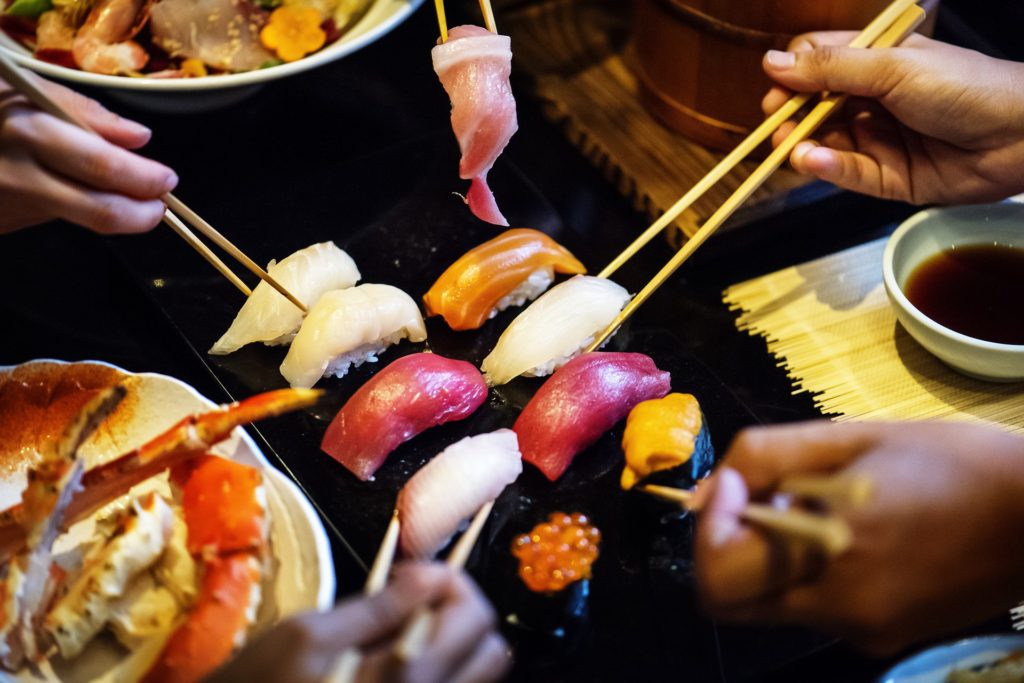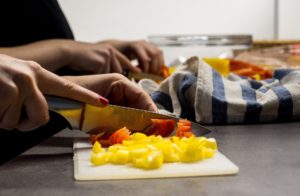- Calls to this hotline are currently being directed to Within Health, Fay or Eating Disorder Solutions
- Representatives are standing by 24/7 to help answer your questions
- All calls are confidential and HIPAA compliant
- There is no obligation or cost to call
- Eating Disorder Hope does not receive any commissions or fees dependent upon which provider you select
- Additional treatment providers are located on our directory or samhsa.gov
5 Coping Skills to Support Your Recovery This Holiday Season

Holidays can be stressful for most individuals, and especially if you are struggling with an eating disorder. Learning healthy coping skills to manage this season can help you stay on your recovery path.
Identify Triggers
Triggers can be identified and therefore you can be prepared. Work with your treatment team to be able to identify what situations, places, and people might be triggering for you.
Work on knowing which areas are currently problematic, and ones that have previously been a trigger before.
Being able to list out, and talk about areas that need attention during the holiday season can then help you plan for what coping skills and tools will help you manage the season.
Being able to work on, healthy coping skills, coping statements, and healthy thinking patterns can aid in knowing what to say and do in situations that may catch you off guard [1].
Working with your treatment team on planning and practicing verbal responses, setting boundaries with self and others, and ways to desensitize yourself to unexpected comments can help you prepare for feeling uncomfortable in situations.
Coping statements are also valuable such as using “I” statements and learning when to say no can help you stay on track.
Being able to shift your thinking to positive statements such as “I can manage this” or “after this, I am going to do my yoga class, or meet up with my friend to check in.” This can provide you an event to look forward too as well as help you know how to navigate difficult people at holiday events.
Journaling is another way to manage your successful movements, areas of improvement, and triggers that occurred. Using this with your treatment team can also help you identify areas on which to work.
Work Your Meal Plan

Keeping to your meal plan during the holiday season can also support your recovery. Working on eating your three meals and three snacks per day can help you with overeating, binging, or restricting during your holiday events.
Meeting with your dietician or nutritionist prior to your holiday events can help you plan to adapt your day to the holiday meals. It can enable you to feel in control of your recovery as well.
Taking a support person with you to an event, if possible, is also an option if you feel that you are unable to be able to manage your meal plan during that event. Remember to be compassionate with yourself if you do engage in some eating disorder behaviors or thoughts.
Share Your Limitations with Loved Ones
Being able to sit down with loved ones about important recovery issues is important. Share with them your holiday decisions and needs, as well as victories and challenges with which you are concerned.
Engage them to help you if needed during holiday events, and to help plan events that are fun and spirited during the season to keep the focus on the joy of the season.
If you are struggling, even while in recovery, let your support loved ones know this. Part of healthy coping skills is having an idea of what you will need from them for support during this time and what expectations you have of any holiday events.
You can also state your personal wants to enjoy with loved ones with them [2]. If it is baking cookies with your favorite relative, or enjoying a tradition with your sibling, let them know and plan for that to happen.
Again, having events that are focused on other areas rather than the eating disorder is essential to keep your recovery on track.
Supports
Keep active in your support groups and treatment team sessions during the holiday season. Sometimes we may feel that it is hard to make all of our obligations, but keeping your recovery a priority is essential.
Pre-schedule treatment sessions, nutritional support meetings, peer support group therapy, and other appointments as necessary. If you are traveling out of town, some treatment teams will do phone sessions while you are away.
Working in therapies such as Dialectical Behavioral Therapy (DBT) can help you prepare for stressful situations.
With DBT individuals learn how to identify emotions and manage them, tolerance for overwhelming emotions and situations through practicing a variety of healthy coping tools, interpersonal relationship building and what healthy relationships look like, and mindfulness practice.
Being able to learn these skills can help you manage expected and unexpected triggers during the holiday season. Mindfulness can aid in enjoying the small moments in life and keeping as stress-free as possible.
Distress tolerance helps you gain the ability to know when to say no to people and events, and how to manage them in a healthy way. Interpersonal work involves learning your personal boundaries, and that of a healthy friendship.
Relish the Small Moments
It’s the small moments in life that we cherish and remember. Keeping a journal or photographs of the small events and minutes in our lives that we enjoy is important. It keeps us grounded which is one of many healthy coping skills.
It keeps us going. It adds joy and peace to our life as we track the joyful times, rather than keep track of the unhealthy or negative ones.
Being able to share our life with our loved ones is a treasure to hold. Keeping on track in your recovery includes being able to stay focused on the self-care activities you need, recognizing your limits and boundaries, identifying potential trigger areas, and practicing your coping skills.
Enjoy this holiday season with loved ones, family, and friends this year.
 About the Author: Libby Lyons is a Licensed Clinical Social Worker and Certified Eating Disorder Specialist (CEDS). Libby has been practicing in the field of eating disorders, addictions, depression, anxiety and other comorbid issues in various agencies. Libby has previously worked as a contractor for the United States Air Force Domestic Violence Program, Saint Louis University Student Health and Counseling, Saint Louis Behavioral Medicine Institute Eating Disorders Program, and has been in Private Practice.
About the Author: Libby Lyons is a Licensed Clinical Social Worker and Certified Eating Disorder Specialist (CEDS). Libby has been practicing in the field of eating disorders, addictions, depression, anxiety and other comorbid issues in various agencies. Libby has previously worked as a contractor for the United States Air Force Domestic Violence Program, Saint Louis University Student Health and Counseling, Saint Louis Behavioral Medicine Institute Eating Disorders Program, and has been in Private Practice.
Libby currently works as a counselor at Fontbonne University and is a Adjunct Professor at Saint Louis University, and is a contributing author for Addiction Hope and Eating Disorder Hope. Libby lives in the St. Louis area with her husband and two daughters. She enjoys spending time with her family, running, and watching movies.
References:
[1] Coping with the Holidays. (n.d.). Retrieved September 01, 2017, from http://nedic.ca/coping-holidays [2] Twelve Ideas to Help People with Eating Disorders Negotiate the Holidays. (n.d.). Retrieved September 01, 2017, from https://www.nationaleatingdisorders.org/twelve-ideas-help-people-eating-disorders-negotiate-holidaysThe opinions and views of our guest contributors are shared to provide a broad perspective of eating disorders. These are not necessarily the views of Eating Disorder Hope, but an effort to offer discussion of various issues by different concerned individuals.
We at Eating Disorder Hope understand that eating disorders result from a combination of environmental and genetic factors. If you or a loved one are suffering from an eating disorder, please know that there is hope for you, and seek immediate professional help.
Published on December 16, 2017.
Reviewed By: Jacquelyn Ekern, MS, LPC on December 16, 2017.
Published on EatingDisorderHope.com

The EatingDisorderHope.com editorial team comprises experienced writers, editors, and medical reviewers specializing in eating disorders, treatment, and mental and behavioral health.


